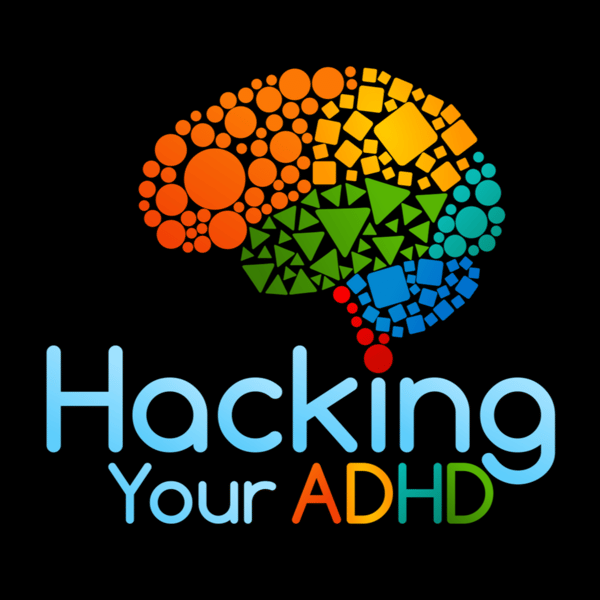Evolutionary Basis of ADHD with Dr. Ryan Sultan
Hacking Your ADHD
William Curb
4.8 • 702 Ratings
🗓️ 10 February 2025
⏱️ 33 minutes
🧾️ Download transcript
Summary
Hey Team!
Today, I’m talking with Dr. Ryan Sultan, a distinguished psychiatrist specializing in ADHD, anxiety, depression, and substance use disorders. He serves as an Assistant Professor of Clinical Psychiatry at Columbia University Irving Medical Center and the New York State Psychiatric Institute. Dr. Sultan is a Senior Psychiatrist at Integrative Psych.
And he has also been exploring the evolutionary basis for ADHD. Now, let’s get to a few things up front here because often when I hear about evolution and ADHD, I know I’m about to hear something about ADHD as a superpower.
That’s not what this conversation is about today. While we will be looking at how ADHD traits might have been useful in a pre-industrial world and why natural selection didn’t weed out our distractible, impulsive brains, the focus is more on how those brains thrived within society instead of looking at them in isolation. This means that our conversation mostly focuses on how these ADHD traits work in conjunction within society rather than trying to view them either negatively or positively. And then we also get into how understanding this evolutionary basis for ADHD can help us understand better ways of managing and treating ADHD.
You can check out Dr. Sultan’s work here: https://www.integrative-psych.org/
If you'd life to follow along on the show notes page you can find that at HackingYourADHD.com/211
Subscibe to our YouTube channel here
Support us on Patreon
This Episode's Top Tips
-
- Regarding the evolutionary basis of ADHD, avoid thinking of it in terms of better or worse and instead try to see how ADHD traits can serve the community as a whole.
- With that lens in mind, the impulsivity, novelty-seeking, and hyper-focus of ADHD brains could have been advantages in early human societies, especially for hunting, exploring, and problem-solving in unpredictable environments. With the opposite from the structured, repetitive, sit-still-and-focus world we live in today giving us more difficulties because it wasn’t “designed” with the ADHD brain in mind.
- Neurodiversity can benefit everyone. Societies thrive on diverse thinking styles. ADHD brains bring creativity, spontaneity, and out-of-the-box problem-solving, which can be a huge asset when properly supported. We’re better when we work together.
Transcript
Click on a timestamp to play from that location
| 0:00.0 | Welcome to Hacking Your ADHD. |
| 0:06.0 | I'm your host, William Kerb, and I have ADHD. |
| 0:10.0 | On this podcast, I dig into the tools, tactics, and best practices to help you work with your ADHD brain. |
| 0:16.0 | Hey team, today I'm talking with Dr. Ryan Sulton, a distinguished psychiatrist specializing in ADHD, |
| 0:22.6 | anxiety, depression, and substance use disorders. He serves as an assistant professor of clinical |
| 0:27.9 | psychiatry at Columbia University Irving Medical Center and the New York Psychiatric Institute. |
| 0:33.7 | And he has also been exploring the evolutionary basis for ADHD. Now I just want to slow down here because often when I hear about evolution and ADHD, |
| 0:42.5 | I know I'm about to hear something about ADHD and superpowers. |
| 0:46.1 | And that's not what this conversation is about today. |
| 0:49.0 | While we will be looking at how ADHD traits might have been useful in the pre-industrial |
| 0:52.7 | world and why natural selection |
| 0:54.3 | didn't weed out our distractible impulse of brains. |
| 0:57.8 | The focus here is more on how those brains thrived within society instead of looking |
| 1:01.3 | at them in isolation. |
| 1:03.0 | This means that our conversation mostly focuses on how these ADHD traits work in conjunction |
| 1:07.5 | within society rather than trying to view them as either negatively or positively. |
| 1:12.4 | Then we also get into how understanding this evolutionary basis for ADHD can help us |
| 1:16.7 | understand better ways for managing and treating ADHD. |
| 1:20.6 | If you'd like to follow along on the show notes page, you can find that at hacking your ADHD.com |
| 1:25.0 | slash 211. |
| 1:27.3 | All right, keep on listening to find out more about the evolutionary basis for ADHD. |
| 1:33.8 | So we're here to talk about this idea of the evolutionary basis for ADHD. |
... |
Transcript will be available on the free plan in -45 days. Upgrade to see the full transcript now.
Disclaimer: The podcast and artwork embedded on this page are from William Curb, and are the property of its owner and not affiliated with or endorsed by Tapesearch.
Generated transcripts are the property of William Curb and are distributed freely under the Fair Use doctrine. Transcripts generated by Tapesearch are not guaranteed to be accurate.
Copyright © Tapesearch 2025.

